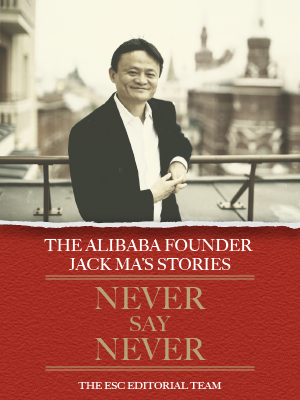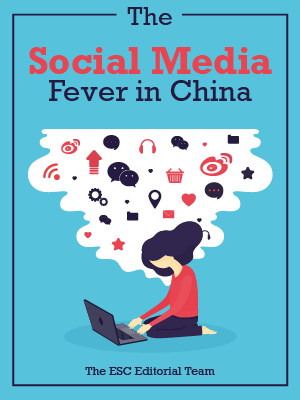Ecommercestrategychina.com uses cookies and other technologies to provide you a better browsing experience. You can get more information regarding the use of cookies, or decline it whenever by clicking Privacy Policy. By using this site or clicking “Okay”, you give us the consent to the use of cookies.
OKAY
To read the previous part of this article, you can click Part 1 - Ten Failures that Jack Ma Confronted When Starting His Own Business.
5. Failure to integrate koubei.com after the acquisition; didn’t use up the opportunity for O2O
Time: 2006
Reasons: Strategic blunders, koubei.com fell behind its competitors at the time
Outcome: It’s never too late to mend, Alibaba made a strategic investment to meituan.com
In 2004, a former Alibaba employee Li Zhiguo left the company and founded koubei.com which grew rapidly in the first few years with users exceeding 1 million. At that time, Alibaba was undergoing a structural change, establishing the B2B the B2C business groups and Jack Ma hoped to integrate koubei.com to expand the latter.
In 2006, Jack Ma contacted Li Zhiguo and asked: "do you want to get koubei.com listed independently or come back to Alibaba and do B2C business together?" He did not hesitate to choose the latter. That year, Alibaba strategically invested $600 million in koubei.com and two years later, koubei.com was fully acquired by Alibaba.
Koubei.com became the largest competitor to dianping.com during the next few years. In 2009, Alibaba upgraded the "big Taobao" strategy and koubei.com was then incorporated into Taobao. Taobao was thought to import enough traffic to Koubei, but this turned out not to be the case. Koubei fell behind dianping.com and meituan.com, which developed rapidly later.
Outcome: Alibaba invested $50 million in Dianping’s rival Meituan (both popular group purchasing websites in China). This indicated that Koubei (an Alibaba affiliate company focuseS on enabling local commerce) had been marginalised in Alibaba's strategy. Later, people in this field felt pity for this deal because Alibaba could have saved a few thousand million US dollars if Koubei had succeeded.
Comment: It seems the failure of integrating Koubei has made Alibaba lost the strategic opportunities for O2O development. With Dianping growing larger it has now become an important pillar of Tencent’s O2O strategy. If Koubei had become a company similar to Dianping, it would have been much easier for Alibaba to develop in the O2O field.
6. Failure on investing in Stars Express Inc. and loss of strategic opportunities for logistics development
Time: 2009
Reason: Burned too much money on cloud logistics which was just a concept then
Outcome: Stars Express went bankrupt; Alibaba fell behind a few years in logistics.
Stars Express, a logistics company, was established in 2009 and gained RMB70 million from Alibaba a year later. JD was a relatively small company in size, and Alibaba had the best opportunity to outpace self-built logistics and self-B2C at that time, but only succeeded in Tmall’s growing-up. Alibaba handed the practice of "cloud logistics" to Stars Express and handed over the technology of "cloud logistics" to Zhejiang Best Logistics Co., Ltd. Later in 2011, Star Express acquired another logistic company Xinfeihong, but the integration did not go smoothly. The two sides broke apart in less than four months with their strengths greatly deteriorated.
In addition, Stars Express implemented a franchise strategy. In 2012, the chaos caused by the strategy broke out in an all-round way and led to an unprecedented crisis. Some executives even disappeared. According to a text that circulated on the Internet, Stars Express had cost Alibaba RMB70 million and its own RMB50 million, and even worse left a debt of RMB16 million.
Stars Express closed down in March 2012. In May that year, its founder proposed a B-round funding plan of RMB100 million, which was rejected by Alibaba’s board of directors. Since then there has been no hope for a comeback and Alibaba had lost RMB70 million.
Comment: The failure of Stars Express had a profound impact on Alibaba. Alibaba's self-built logistics strategy thus slowed down for several years and provided a strategic opportunity for JD to expand its self-built logistics and distribution business.
7. Taobao.com's service fee increased too much thus leading to a seller’s crisis.
Time: 2011
Reason: Taobao sellers dissatisfied with the substantial increase in costs.
Outcome: Readjustment of the new regulation; postponement of the execution time
In October 2011, Taobao Mall (now renamed Tmall) released new regulations to raise the annual service fee for technical services from RMB6,000 to RMB30,000 and to RMB60,000 for a different standard, an increase of 5 to 10 times respectively. At the same time, the penalty for the sellers to breach the contract had also been raised too, from the previous RMB10,000 to RMB50,000, RMB100,000 and RMB150,000.
The move was unpopular with some small and medium-sized businesses, they attacked big sellers by purchasing from them, then returning, and leaving negative comments, then requesting a refund. In response, Jack Ma responded strongly on Weibo (one of the biggest social media platforms in China) that Taobao would stick to its policy. Taobao later claimed that they had to call the police.
However, the confrontations didn't last for a long time. In October 17, 2011, Taobao adjusted the new regulations and postponed the implementation time and, in addition, Alibaba also contributed a total of RMB1.8 billion to help Taobao sellers grow.
Comments: This event had a big influence on Alibaba’s value of “To Make It Easy to Do Business Anywhere” which was proposed by Jack Ma. Alibaba needed to make a profit as the platform became larger and larger which also aggravated the competition. Big sellers had more money to advertise on Alibaba which made it more and more difficult for small and medium sellers to do business on Taobao.
8. Alipay became an independent company; Jack Ma fell off the pedestal because of breach of contract.
Time: 2010
Reason: To get a third-party payment license
Outcome: Alipay was transferred from a foreign company to a domestic company.
Alipay was preparing to apply for a license when this happened. The Bank of China issued a new regulation that third-party companies needed to get a license before they could engage in payment business. The problem was that Alipay was a 100% foreign-owned company before June 2009. Jack Ma's idea was that it would be much easier if they turn Alipay into a domestic company.
Zhejiang Alibaba then acquired Alipay, and Ma transferred 70% of the stakes in Alipay into this company and later formed a joint venture. In 2010, Jack Ma also set up a "license group”, led by Alipay’s CEO at that time, to inquire on how to get a license. In August of that year, Alipay finished transferring the remaining 30% into domestic capital.
The two equity transfers were said by the public to be the independence of Alipay. Finally, Jack Ma got his dream come true. In May 2011 Alipay received a license, but negative impact on his reputation followed.
Several shareholders of Alipay, Jerry Yang from Yahoo, Masayoshi Son from Softbank didn't agree with this decision, because that meant they would lose control of Alipay. Although stuck in a deadlock for some time, Jack Ma still insisted on taking the license first.
Comment: From an emotional point of view, many entrepreneurs would certainly support turning Alipay into a domestic capital control company, but looking at the hard facts of a commercial contract, Jack Ma should have complied. This incident was a landmark event that pushed Jack Ma off his pedestal.
9. Alibaba trapped in a credit crisis because of China suppliers' fraud in China; Jack Ma dismissed CEO David Wei.
Time: 2011
Reason: Poor management
Finale: Executive resigned.
In 2011, Alibaba B2B company CEO David Wei resigned. He had been lobbied by Jack Ma for 6 years and eventually joined Alibaba. Jack Ma approved the resignation, but why?
Alibaba found that there were signs of fraud by Chinese suppliers among those B2B companies in China. Even worse were indications that one of the company’s sales teams was involved and had helped these suppliers, which resulted in such transactions occurring. After a month of investigation and evidence collection, there were 1219 and 1107 suppliers in 2009 and 2010 respectively that had raised suspicion. Subsequently, the 2326 suppliers were all shut down and submitted to the judiciary for investigation.
That year, Jack Ma was informed through insiders and learned that CCTV "315” world’s consumer rights day show would expose Taobao's fake products transactions. He decided to immediately carry out an internal investigation, and took $1.7 million to compensate 2249 victims.
In February of the same year, Ma sent an email and exposed all the incidents to the public. Ma made a mistake in management, experienced pain, but somehow restored some of the company's image.
10. Mobile Messaging App Laiwang failed to stop Wechat.
Time: 2013
Reasons: Blindly followed the trend; disagreements among executives
Outcome: Laiwang failed, and Alibaba had to find another way out.
To cope with and suppress the heyday of WeChat, Alibaba launched the messaging APP “Laiwang” in September 2013. Jack Ma was confident, saying that this product would give Wechat a serious blow.
In October 2013, the growth in the number of users was poor, only about 1 million. Jack Ma personally mobilised employees to promote it, and set very strict Key Performance Indicators (KPI). Those employees who successfully referred 100 outside users would be rewarded, however, the passion to engage in this died out only a few months later.
The 4.3 version, released at the end of 2014, was considered to no longer conform with WeChat, transferring from an IM tool to a social app. Earlier 2015, there was news that Alibaba's acquisition of MOMO, a social app between strangers and worth $10 billion, was rejected. In March 2014, Alibaba invested in the US IM tool Tango (similar to WeChat).
This shows that Jack Ma has clearly realised that there is no social gene in Albabai, they won’t succeed in IM App.
Comment: In fact, it would have been wiser for Jack Ma to consider acquiring MOMO than creating Laiwang app. Of course, many founders think they are better than startups, but the truth often hits them.
Please Login to add comments.

$9.99 $19.98

$9.99 $19.98